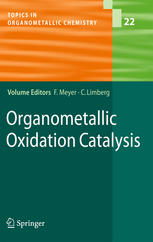

Most ebook files are in PDF format, so you can easily read them using various software such as Foxit Reader or directly on the Google Chrome browser.
Some ebook files are released by publishers in other formats such as .awz, .mobi, .epub, .fb2, etc. You may need to install specific software to read these formats on mobile/PC, such as Calibre.
Please read the tutorial at this link: https://ebookbell.com/faq
We offer FREE conversion to the popular formats you request; however, this may take some time. Therefore, right after payment, please email us, and we will try to provide the service as quickly as possible.
For some exceptional file formats or broken links (if any), please refrain from opening any disputes. Instead, email us first, and we will try to assist within a maximum of 6 hours.
EbookBell Team

4.7
66 reviewsEighty per cent of all compounds produced in the chemical and pharmaceutical industries require at least one essential catalytic step during their synthesis. At the same time the use of hydrocarbons as a feed-stock for commodity and fine chemicals typically requires an oxidation step, which is usually mediated by a transition metal compound. Consequently oxidation catalysis is a major research field in chemistry, both in academia and in industry. In many such processes, species with metal-carbon bonds are formed as key intermediates, and these processes represent the primary focus of this volume. An important aspect covered by some of the expert contributors is the use of organic ligands - and thus organometallic complex metal fragments - to achieve efficient oxidation catalysis. It has not been self-evident that organometallic complexes can survive the conditions necessary for polar oxygen-transfer reactions, but research over the last decade concerning oxo and peroxo complexes functionalized by organic ligands has clearly shown that relatively non-polar M-C bonds can be quite stable in the presence of oxidants and protic media, and that they may even be essential for the favourable activity and life-time of a catalyst. Also considered in this context is the oxidation chemistry of basic organometallic species in the gas phase, as this may reveal fundamental characteristics inherent to oxidation catalysts.